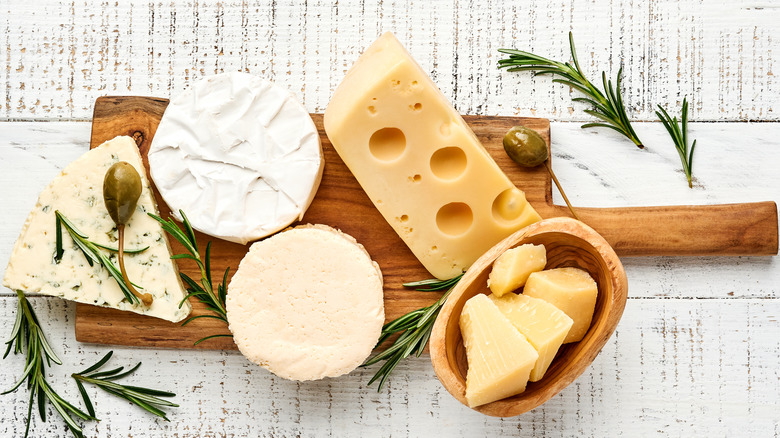The Real Reason Cheese And Butter Are Severely Impacted By Inflation
People all over the globe are feeling the effects of rising food prices. The war in Ukraine, supply chain issues, and inflation have upset the market for many food categories. The American government has made strides in order to lower these costs. In an effort to combat overall inflation the Federal Reserve chose to raise the interest rates by its largest margin in almost 30 years (via NPR). Sadly, it may be some time until the effects of this move are felt by consumers. President Biden has said that there are few courses of action the government can take to immediately lower the cost of living in America right now.
The latest food price index from the Food and Agricultural Organization of the United Nations (FAO) has shown that overall prices may be starting to drop. Their reports show that prices dropped 0.6% in May 2022 compared to the month before. However, the FAO index has also shown that wheat and meat commodities are not dropping as quickly as other sectors.
High milk prices will trickle down to cheese and butter
Another sector that is likely to continue rising is dairy. Products like cheese and butter are dependent on milk for their production, and the price of raw milk has been rising steadily. According to the U.S. Bureau of Labor Statistics' producer price index, raw milk prices have risen more than 47% from 2021-2022.
These prices are due to heightened costs of production for dairy farmers. The costs of cattle, animal feed, and farm labor have all risen in the last year (via CoBank). According to Food Dive, these costs will likely be passed onto butter and cheese manufacturers who will be competing over more expensive milk, and limited stock. Food Dive says that consumers are already starting to see these changing costs. According to Axios, more Americans are already reaching for smaller half gallons of milk rather than full gallons, and also switching to store brands, to save money. They are also likely to forgo butter for cheaper non-dairy alternatives like margarine, vegetable oils, and shortening (via CoBank). Food Dive reports that cheese manufacturers say they are only going to continue raising prices while labor and goods shortages continue.

